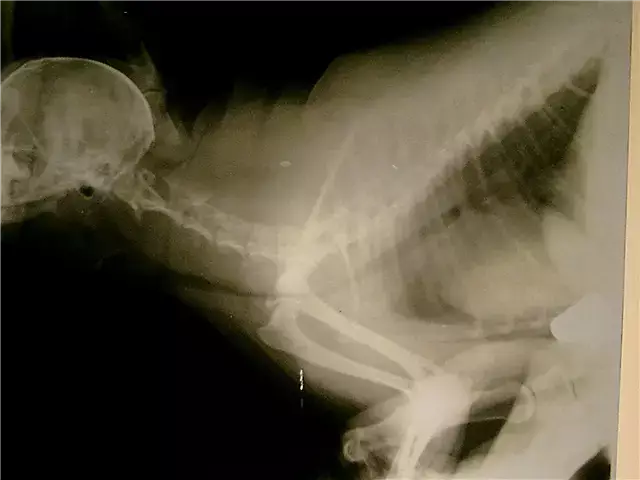- Author Rachel Wainwright wainwright@abchealthonline.com.
- Public 2023-12-15 07:39.
- Last modified 2025-11-02 20:14.
Hesperidin
Instructions for use:
- 1. Pharmacological action
- 2. Release form
- 3. Indications for use
- 4. Contraindications
- 5. Methods of application
- 6. Side effects
- 7. Storage conditions

Hesperidin is a venotonic drug used in the treatment of chronic venous insufficiency and chronic hemorrhoids.
Pharmacological action of Hesperidin
Hesperidin, a plant flavonoid found in citrus peels, helps to strengthen the walls of blood vessels and their permeability, improve the condition of capillary vessels, increase blood flow in the coronary vessels, lower blood pressure and prevent bleeding. Also, hesperidin, by relaxing the smooth muscles of the blood vessels and bile ducts, helps in the treatment of mycoses, arteriosclerosis, ulcers, allergies and tumors. In addition, it reduces allergic reactions, asthma symptoms, and has antioxidant, anti-carcinogenic and anti-inflammatory properties.
In combination with diosmin, hesperidin has an angioprotective and venotonic effect, reduces the distensibility of veins and capillary permeability and increases their tone. The combined action of these active ingredients helps to reduce venous stasis and improve microcirculation and lymph drainage.
Release form
Hesperidin is available as a powder substance. For the treatment of venous insufficiency, the combined preparations Venarus and Detralex are produced, containing 50 mg of hesperidin and 450 mg of diosmin.
Indications for the use of Hesperidin
Hesperidin is indicated for the treatment of:
- Chronic venous insufficiency of the lower extremities, which are accompanied by night cramps, a feeling of heaviness in the legs, trophic disorders and pain;
- Chronic hemorrhoids, as well as acute hemorrhoidal attacks.
Contraindications
According to the instructions, hesperidin is contraindicated for use during lactation, as well as in case of hypersensitivity to bioflavonide.
Application methods
According to the instructions, hesperidin in combined preparations with diosmin in the treatment of chronic venous insufficiency of the lower extremities is used 1 tablet 1-2 times a day during meals in the afternoon and evening.

In acute hemorrhoids, the first four days are usually prescribed 6 tablets per day, then for three days 4 tablets per day. If the therapy is ineffective, the drug should be canceled and additional proctological examination should be performed. The use of drugs containing hesperidin, with an exacerbation of hemorrhoids, does not replace the specific treatment of other anal disorders.
When treating other diseases as part of a combination therapy, the dosage regimen of Hesperidin depends on the indications and is selected individually by the doctor.
Side effects
According to the instructions, hesperidin can cause digestive disorders, manifested as belching, heartburn and a feeling of pressure in the abdomen, as well as symptoms of neurovegetative disorders.
Storage conditions
Medicines containing hesperidin are available by prescription.
The recommended shelf life is 24 months.
Information about the drug is generalized, provided for informational purposes only and does not replace the official instructions. Self-medication is hazardous to health!






